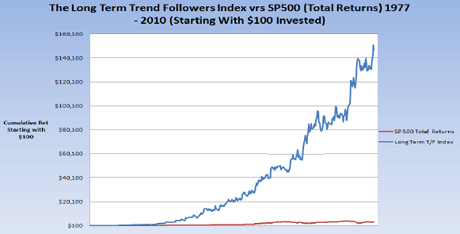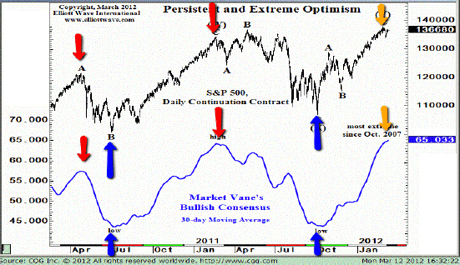What this man said made me re-think my portfolio
The speakers at this year's MoneyWeek conference were full of eye-opening words of advice, says Bengt Saelensminde. Here's a roundup of some of the most revealing.
Get the latest financial news, insights and expert analysis from our award-winning MoneyWeek team, to help you understand what really matters when it comes to your finances.
You are now subscribed
Your newsletter sign-up was successful
Want to add more newsletters?

Twice daily
MoneyWeek
Get the latest financial news, insights and expert analysis from our award-winning MoneyWeek team, to help you understand what really matters when it comes to your finances.

Four times a week
Look After My Bills
Sign up to our free money-saving newsletter, filled with the latest news and expert advice to help you find the best tips and deals for managing your bills. Start saving today!
Protect and Prosper - that was the title of this year's MoneyWeek conference and it's exactly what we're all about here at The Right Side.
I went along with my dad and we came away full of insights from those smart colleagues of mine. I want to share some of them with you today.
I know that most readers weren't able to attend. But it was nice to chat to a few Right Siders between the presentations.
MoneyWeek
Subscribe to MoneyWeek today and get your first six magazine issues absolutely FREE

Sign up to Money Morning
Don't miss the latest investment and personal finances news, market analysis, plus money-saving tips with our free twice-daily newsletter
Don't miss the latest investment and personal finances news, market analysis, plus money-saving tips with our free twice-daily newsletter
And because there was so much important stuff that I know will be of interest to you, I've prepared a special two-part summary.
Today's issue is a little longer than usual, but I hope you'll enjoy it.
A dangerous new world
MoneyWeek magazine's editor-in-chief, Merryn Somerset Webb, kicked the show off in her own inimitable way... revealing perhaps some surprising Marxist sympathies. But don't worry, it's not as radical as it sounds. We all know that the capitalist system is at risk today I mean, for capitalism, you might expect some capital for starters.
Merryn's point was that corporations have broken a social contract. That is, the modern corporation has managed to squeeze out its very own customers. Shifting manufacturing to the lowest cost operator abroad is an obvious way our workers are disenfranchised. But the problems run deeper skinning the public for the maximum, while paying out the minimum is leading to massive wealth inequality.
The social contract used to be something like: "We'll get extremely rich, while you get a little richer"... but today corporations, driven by bonus-mad managers don't consider wealth distribution as anything to do with them. And now, the poor have never been poorer.
That poses a serious dilemma...
Because if the capitalist system can't distribute wealth fairly, then the state will come in and do it. That means taxing the haves, and doling it out to the have-nots.
And so the first thing anyone with money should be thinking about is...
How to protect your wealth
One of the stand-out bits of advice that I came away with was from Tim Price. What he said in his 30-minute presentation has caused me to re-think my portfolio.
Tim made a compelling argument for "Trend-following fund managers." Most investors are what we call long-only' that is, they consider which stocks and markets will do well and put their money down (long).
But over the long-run, most fund managers don't do very well. But there's an exception. And they are a group of fund managers that don't take a decision on companies, or markets at all. Instead, they follow market trends. They don't care if markets go up or down, they just put on their long or short positions accordingly.
And boy, has trend-following paid off. Here's a chart from Tim's presentation. See what I mean about compelling?

(Source: Lawrence Clarke Investment Management)
Yes, that red line shows stocks (S&P 500) since 1977 and we know that stocks have done pretty well over the period. But wow... the blue line, the trend followers,' just blows them away.
As well as being a fantastic way of making money, another beauty of trend following is that its returns are pretty uncorrelated to the market. Tim reckons now could be a great time to get in on the action. And that makes an awful lot of sense to me it's why I'm looking into one of the funds he mentioned.
Now if you want to take advantage of trends, and you don't want to let the professionals take charge of your portfolio, then John Burford had some other ideas...
John is a trader and doesn't rely on the market going up (or down). His stance is, let's just do the opposite to everyone else. He calls himself a contrarian swing-trader' - he zigs when others zag.
Again the evidence for his conviction is compelling. Here's my favourite chart from his presentation:

It's a chart of the S&P 500 against one of the most commonly used surveys on market sentiment.
Basically, it says that when the market is feeling most bullish (blue line cresting), then the chances are the market will go down. And equally, when the market view is most negative (blue line in a trough), then it's time to place your up-bets. As a contrarian investor, I know that there's a lot to be said for John's technique.
And just look at where the blue line is today... the bullish consensus is at its highest since Oct 2007. Now that looks ominous.
But if trading, isn't your thing, how about this...
How you could profit from the Eastern Star
The third speaker I want to draw your attention to is Lars Henriksson. Lars follows some of the most exciting markets in the world. He spends his time flitting about Southeast Asia meeting people, reviewing companies and ferreting out great investments.
Here at The Right Side, we're dead keen on Asian stock markets. There is a world of difference between the dynamics of what's going on here in the West, and what's playing out in the Far East.
The first myth that Lars exploded was the one that says the Far East is dust because China is bust.
As Lars points out, China is at heart, a communist state. Andit suffers an intractable problem: the misallocation of resources through central planning.
There's an awful lot more to Asia than China. And most of the rest of Asia is in the throes of a capitalist revolution.
Lars points to his ASEAN (Southeast Asia) superstars countriessuch asLaos, Philippines, Cambodia, Thailand, Vietnam, Myanmar, Indonesia and Singapore. These guys suffered a savage blow during the Asian financial crisis of 1997/98. Since then, corporations have been forced to build strong balance sheets and credible businesses.
Lars follows what the locals are doing. And the locals are placing their bets on well-run small caps in the region. Why small caps? Well, because the Westerners have bid up the prices on all the big businesses. They're the only stocks the Western fund managers bother with.
Of course, that leaves opportunities for those with a bit of local knowledge.
Lars showed us an Indonesian banking stock for instance. While Western banks make, say, 2% interest margin, these guys are making nearer 7%. Sounds good. But maybe you think an Indonesian bank is a bit risky? That's a fair point. But consider that this bank lends mostly to Indonesian civil servants. Consider too that most of these loans are repaid directly out of their wages I've never seen that before!
With growing prosperity in the region, the future looks good for this bank. But here's the best bit. The stock is on a p/e ratio of less thaneight times and yields more than 5%.
Southeast Asian small caps are effectively a market where Westerners are shut-out unless you know where to look. That's where Lars comes in. There are some great bargains to be had. I made a note of both this banking stock, and another one Lars let us in on.
And you can too...
This article is taken from the free investment email The Right side. Sign up to The Right Side here.
Important Information
Your capital is at risk when you invest in shares - you can lose some or all of your money, so never risk more than you can afford to lose. Always seek personal advice if you are unsure about the suitability of any investment. Past performance and forecasts are not reliable indicators of future results. Commissions, fees and other charges can reduce returns from investments. Profits from share dealing are a form of income and subject to taxation. Tax treatment depends on individual circumstances and may be subject to change in the future. Please note that there will be no follow up to recommendations in The Right Side.
Managing Editor: Frank Hemsley. The Right Side is a regulated product issued by Fleet Street Publications Ltd.
Fleet Street Publications Ltd is authorised and regulated by the Financial Services Authority. FSA No 115234. https://www.fsa.gov.uk/register/home.do
Get the latest financial news, insights and expert analysis from our award-winning MoneyWeek team, to help you understand what really matters when it comes to your finances.
Bengt graduated from Reading University in 1994 and followed up with a master's degree in business economics.
He started stock market investing at the age of 13, and this eventually led to a job in the City of London in 1995. He started on a bond desk at Cantor Fitzgerald and ended up running a desk at stockbroker's Cazenove.
Bengt left the City in 2000 to start up his own import and beauty products business which he still runs today.
-
 Should you buy an active ETF?
Should you buy an active ETF?ETFs are often mischaracterised as passive products, but they can be a convenient way to add active management to your portfolio
-
 Power up your pension before 5 April – easy ways to save before the tax year end
Power up your pension before 5 April – easy ways to save before the tax year endWith the end of the tax year looming, pension savers currently have a window to review and maximise what’s going into their retirement funds – we look at how